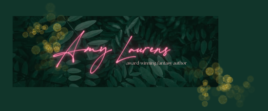But just because you got sick of some teacher drilling it into you that no, that’s not what that book is about, THIS is it’s theme – yes, even though that book is fun to read, we have to think about what it means… All this does not give you an excuse to ignore themes, especially in your own work.
Let’s take a quick look at the definition of a theme (from Princeton and East Long Meadow).
* The subject matter of a conversation or discussion;
* A unifying idea that is a recurrent element in literary or artistic work;
* A central idea or abstract concept that is made concrete through representation in person, action, and image.
For writers, though, I think the most important thing to remember is that what you think the theme is, they way you write and read the book, is not what the New York Times or even a highschool English class might decide your theme is. Themes are intensely personal.
Of course, they have some general connectivity, too, otherwise we’d never agree on what a book meant, but at the bottom of it all, down in the nitty-gritty dirt of writing the book, the theme is personal.
The theme is you.
Put simply, the theme of the book is the part of it that resonates with you, the bit that gives it meaning – the bit where you actually feel like you’re saying something, rather than just pushing characters around a page.
As you might be able to tell, I’m pretty keen on themes. Why is that, you ask? Because fun though fluff is to read, I decided long ago that the reason I was writing is because I had something to say. Now, please don’t get me wrong here: I’m not in ANY way advocating preaching-through-fiction. That kind of book is terrible, unless you happen to already agree with it; nobody likes a missionary.
What I AM saying is that for me, personally, I have to feel like the book is important. I have to feel like I’m in there somewhere, and there has to be some part of it that I connect with, appreciate, agree with.
So, how can you find your themes, and once you’ve found them, how do you put them into your writing?
Two easy steps – and if you can get your Internal Editor out of the way, they really are not only easy, but FUN.
First of all, brainstorm. What matters to you? What is it in life that counts? What makes you mad, drives you insane, delights you, restores your faith in humanity, intrigues you, confuses you, sends you into the depths of despair? There are absolutely no right or wrong answers to this, because it’s personal. Please, I beg you with everything I have, do not censor yourself when you do this. If you do, you’ll end up with only the themes that your editor has classed as ‘safe’, ‘acceptable’ – and how brightly you shine is a direct correlate of how much you risk.
You do want to shine, don’t you?
Good. So, brainstorm in hand, we move on to step two. Though before we do it might be worth noting that my Sweet Spot Maps are exactly the brainstorm that I’ve just described, categorised into things I hate, love, fear, get shivers from, am drawn to and need.
Step Two: give these things to your characters. You love thunderstorms? Great – so does your MC. Scared of ghosts? That’s what your MC has to confront. These two aren’t so much themes, but you can do it with themes too:
Watching corporations exploit the poor gets your blood boiling? Great. Your MC’s battle is against a multi-national corporation and her goal is to save the poor village where she works. Scared of your own dark side, of what you could do if ever you got really angry? Fabulous. Your MC is pushed right over the edge and either surprises herself, or lives her worse nightmare and has to face the consequences.
But hold on, I hear you cry. Those aren’t themes, they’re plot elements!
To which I smile. Yes, they are. But they’re plot elements that create themes, and more importantly, themes which you can believe in. Thunderstorms maybe not (though you could extrapolate and go for symbolism: thunderstorms are wild, untameable, unpredicable. Is this your MC, or who they wish they were?), but let’s take the multi-national corporation one. That gives you themes of exploitation, poverty, the little person against the big, individual against corporation and hence power, and possibly truth, lies and propaganda.
Themes are scary to a lot of people, and highschool English departments have a lot to answer for. But as a writer, themes are critical to your work – and not only do they not have to be scary, creating them can be downright fun. Stress less, and let your subconscious delve into the things that matter to you most – these are your themes.
